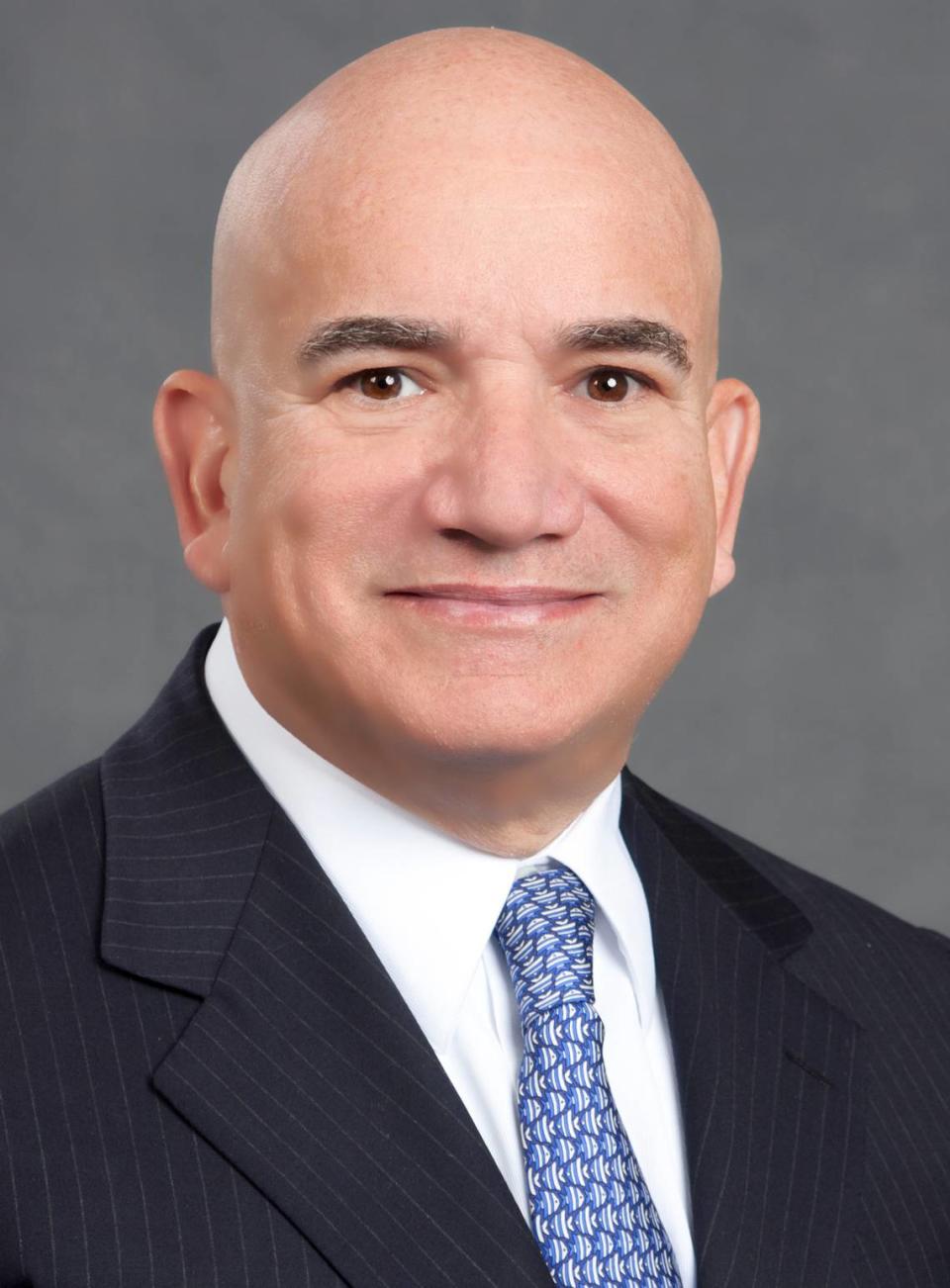Jackson’s transplant programs found to be in ‘full compliance’ by regulators, Jackson says
After receiving at least one complaint about the Miami Transplant Institute, federal and state regulators conducted a surprise inspection of the center’s organ transplant programs at Jackson Memorial Hospital, including its temporarily shuttered adult heart transplants, and found “zero deficiencies,” Jackson’s top executive recently said.
“Surveyors spent three days at Jackson Memorial and MTI conducting extensive interviews with our staff, inspecting our clinical areas and combing through medical records and documentation. They left our facility with a few dozen additional medical records for further review. I am pleased to inform you that CMS and ACHA identified zero deficiencies, and we were found to be in full compliance, “ Jackson Health CEO Carlos Migoya told the Public Health Trust, the governing body of Miami-Dade’s public hospital system.
Migoya was referring to the Centers for Medicare & Medicaid Services, the federal agency that oversees hospitals, and the Florida Agency for Health Care Administration, which regulates state hospitals.

The investigators visited the Miami transplant center in April after receiving a complaint about possible noncompliance with federal health and safety regulations. The regulators found “no deficiencies” while conducting the unannounced surveys at Jackson’s transplant center from April 11- 13, according to a federal database that posts inspection results.
The inspections came shortly after the United Network for Organ Sharing, or UNOS, the nonprofit that oversees the country’s organ transplant system, sent a team of experts in early April to conduct a peer review after Jackson shuttered its adult heart transplant program in mid-March. The organ sharing network is scrutinizing the program after it received internal and external complaints relating to poor patient outcomes, including deaths and infections, after the heart transplants.
A separate complaint sent to Medicare is about poor patient selection for the hospital’s left ventricular assist device, or LVADs, which are basically a mechanical heart pump implanted when a heart is too weak to circulate blood around the body.
What Medicare, state agency looked at
During their visit, federal investigators zeroed in on infection control and conducted an “abbreviated” version of their periodic patient-centered inspections to ensure the transplant center’s adult and pediatric heart, adult lung and adult kidney transplant programs were complying with federal requirements, according to documents recently obtained by the Miami Herald.
Medicare confirmed to the Miami Herald that its investigation was prompted by a complaint.
The agency also confirmed that it reviewed Jackson’s left ventricular assist device program, along with several other hospital requirements, during the “complaint survey process,” but did not elaborate.
Federal regulations require hospitals to have an infection control and prevention surveillance program that adheres to nationally recognized guidelines to reduce healthcare-associated infections, or HAIs, and antibiotic-resistant organisms.
HAIs are often preventable infections that people get while receiving care at a healthcare facility. Some of the most common HAI infections include catheter-associated urinary tract infections, central line-associated bloodstream infections, surgical site infections, and ventilator-associated pneumonia, according to the Centers for Disease Control and Prevention. These infections are a “significant cause of illness and death, according to the U.S. Department of Health and Human Services.
READ MORE: He died after getting a heart transplant at Jackson. His loved ones want answers
The regulators also reviewed the Miami Transplant Institute’s adult and pediatric heart, adult lung and adult kidney organ transplant programs to ensure they met transplant center and emergency preparedness requirements for recertification.
Jackson officials said the agency didn’t share any details about the complaint with the hospital, only the outcome of its visit. The two agencies — Medicare and and the Florida’s Agency for Health Care Administration — did not respond to specific questions from the Herald about their investigations.
A surveyors’ job is not to confirm whether the “events contained in the allegation” occurred, but to “determine” whether the transplant center is complying with the federal requirements needed to be a Medicare/Medicaid-certified provider, according to federal inspection operation manuals.
Miami transplant officials to meet with UNOS
Four months after stopping adult heart transplants, Jackson leaders are in the process of overhauling the program. Interim doctors have replaced Dr. Matthias Loebe, the former chief of heart transplants, and Dr. Anita Phancao, the former director of heart failure, who were the focus of the complaints that spurred multiple investigations on the federal and state level.
Hospital officials announced in the June 28 Public Health Trust meeting that the Miami Transplant Institute will soon have a new leader for its adult heart transplant program, which is still closed.
This person has a “proven track record of success, who has the potential and vision needed to transform this program into one of the nation’s best,” Migoya told the board.
“At the core of everything we do is our patients and providing them with the best care 100% of the time. For transplant patients in particular, we know that for many of them, MTI is quite literally their last chance,” Migoya said. “That responsibility is one that we never take lightly. And that is why we are working towards building this program up to its full potential.”
Dr. Chris Ghaemmaghami, executive vice president at Jackson Health, said the hospital will be meeting in late July with the United Network for Organ Sharing, or UNOS, the nonprofit that oversees the country’s organ transplant system.
It’s not known yet when Jackson will resume adult heart transplants.
READ NEXT: How do Florida hospitals get organs for the sickest patients in need of transplants?

